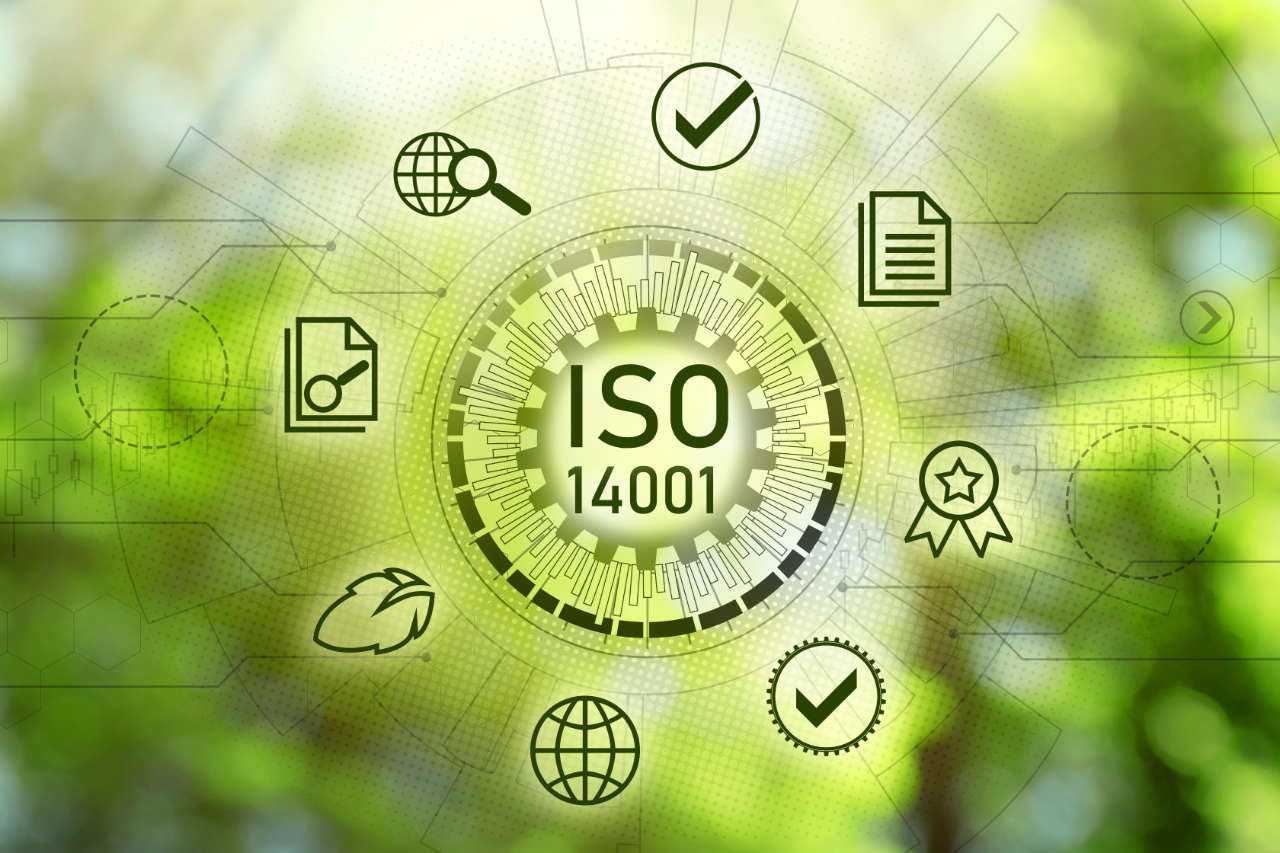As part of a global drive to tackle climate change, the government’s Climate Action Plan has set targets of a 51% reduction of overall greenhouse emissions by 2030 and Net-Zero by 2050 in a bid to create a cleaner, greener environment and reduce the effects of climate change. To help meet these targets, businesses are looking to realign their strategies and practices and acknowledge their roles in contributing to climate change, with many keen to learn the benefits of ISO 14001 certification and other green certification schemes.
The public awareness of the climate crisis is more significant than ever, with 85% of Irish citizens concerned about climate change. Along with re-evaluating their contributions, an increasing number are seeking action from the businesses and brands they shop with.
According to Bord Bia’s Global Sustainability Outlook Study 2021, 71% of Irish consumers say buying more sustainably-produced products will become more important in the next few years.
What are green business credentials?
Green credentials are values, policies and processes that demonstrate your commitment to managing your environmental impact, with leading examples including international standards such as ISO 14001 and ISO 50001.
A business’s green credentials will typically reflect its values and processes relating to activities involving:
- Energy – such as renewables, non-renewables, energy management and reduction.
- Materials – such as using and disposing of paper, cardboard and packaging materials.
- Waste – such as the reduction, reuse and recycling of waste materials.
- Water – including the consumption, contamination and handling of wastewater.
Green certification schemes
Several green business certification schemes will assess and monitor how well your organisation implements and maintains sustainable practices and meets environmental standards.
Certification to a scheme usually involves a third-party audit of your organisation’s environmental and sustainable practices.
An Accredited Certification Body, such as Amtivo (formerly Certification Europe), will assess your business’s practices against the criteria of the standard or credential and, if the your business meets the requirements, a certification to the standard will be issued. Your organisation can then use the certificate to help market your dedication to helping the environment and the steps you’re taking for sustainability.
There are various environmental standards and certifications for organisations to achieve, with some standards such as ISO more widely recognised globally.

Benefits of ISO 14001 certification
You can implement environmental and sustainable practices without pursuing green certification, but achieving certification such as ISO 14001 can offer significant benefits, including:
Boost your reputation
Marketing your organisation’s green certifications, such as ISO 14001 Environmental Management System, can boost your reputation with consumers, employees and other organisations. Certification demonstrate your organisation’s commitment to measuring, monitoring and controlling your environmental impact, such as resource use and waste. As research shows that 57% of Irish consumers believe businesses should help them make environmentally friendly choices, showcasing green credentials could be a significant starting point.
Competitive advantage
Achieving green credentials can provide a competitive advantage. Larger firms and multinationals are increasingly assessing the supply chains as part of their environmental, social and governance (ESG) activities. This puts pressure on smaller firms that form the supply chain to demonstrate their sustainability credentials – and provide opportunities for certified businesses to supply to ESG-focused corporates.
Greater opportunities
Green credentials may help your business attract investors increasingly looking to invest in companies with strong and authentic environmental-friendly values. According to the Irish Times, demand for sustainable investments overtook traditional products in 2020, and global sustainable fund assets more than doubled in 2021. With global ESG assets set to rise to $50 trillion by 2025, industry observers predict that within a matter of years, 100 per cent of investments will consider ESG risks and opportunities.
Businesses that plan and manage environmental impacts, reduce energy use, and deliver more sustainable operations may also be more attractive to investors as it demonstrates derisking activities and costs, such as an over-reliance on non-renewable fuels subject to geopolitical turmoil.
It could also help win you tenders from government bodies and organisations for whom environmental certification, such as ISO 50001 Energy Management Systems, may be a requirement.
Save money on business costs
To achieve green business certifications, you will need to implement the necessary practices that could also save your organisation money. For example, an ISO 50001 energy management system involves the introduction of frameworks to monitor and control energy use and reduce energy consumption.

Green certification schemes and the benefits of ISO 14001 certification
There are many types of green certification schemes – and some are more widely recognised than others:
ISO 50001
ISO 50001 is an internationally recognised certification focusing on an organisation’s energy management system. Developed by the International Organization for Standardization (ISO), it provides the framework for businesses to incorporate efficient energy management practices to help reduce energy consumption.
Achieving ISO 50001 certification allows your organisation to demonstrate its commitment to reducing greenhouse gas emissions and improving energy use efficiency in line with the Climate Action Plan targets. It also provides for the monitoring and maintenance of your energy management system.
ISO 14001
ISO 14001 is an international certification standard for environmental management systems (EMS). An EMS helps organisations measure, manage and reduce the impact they have on the environment. The benefits of implementing ISO 14001 include highlighting your best practices regarding measuring and controlling your carbon footprint and improving the efficiency of your resources.
Carbon trust
The Carbon Trust offers PAS 2060, a certification of carbon neutrality. It establishes the requirements for quantifying, reducing and offsetting greenhouse gas emissions and helps show your organisation’s commitment to decarbonisation.
EMAS
Developed by the European Commission, the EU Eco-Management and Audit Scheme (EMAS) helps organisations evaluate, report and improve their environmental performance. It encourages the transparency of environmental performance by providing the information publicly and helps support organisations find the tools to improve their environmental impact.
WFTO
The World Fair Trade Organisation offers a WFTO Fair Trade Standard, which ensures an organisation implements the 10 Principles of Fair Trade, which include principles such as:
- Transparency and accountability.
- Fair Trade practices.
- Good working conditions.
- Respect for the environment.
The standard is part of the WFTO Guarantee System which focuses on the management of Fair Trade Enterprises. An organisation must continually implement and refine its Fair Trade practices while showing transparency.
Find out more about the benefits of ISO 14001 certification
Learn more about the benefits of ISO 14001 certification and our ISO 14001 certification services.



